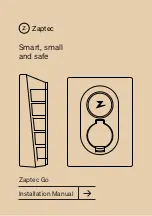
This feature applies the vehicle brakes at individual wheels and, if
necessary, reduces engine power. If the trailer begins to sway, the
stability control light flashes and the message
TRAILER SWAY
REDUCE SPEED
appears in the information display. The first thing to
do is slow the vehicle down, then pull safely to the side of the road and
check for proper tongue load and trailer load distribution. See the
Load
Carrying
chapter for specific loading information.
RECOMMENDED TOWING WEIGHTS
Note:
Do not exceed the trailer weight for your vehicle configuration
listed in the chart below.
Note:
Make sure to take into consideration trailer frontal area. Do not
exceed:
•
36.5 feet
2
(3.39 meters
2
) trailer frontal area for vehicles with the
standard towing package
•
60.0 feet
2
(5.57 meters
2
) trailer frontal area for vehicles with the
optional towing package
Note:
For high altitude operation, reduce the gross combined weight by
2% per 1000 feet (300 meters) starting at the 1000 foot (300 meter)
elevation point.
Note:
Certain states require electric trailer brakes for trailers over a
specified weight. Be sure to check state regulations for this specified
weight. The maximum trailer weights listed may be limited to this
specified weight, as the vehicle’s electrical system may not include the
wiring connector needed to activate electric trailer brakes.
Your vehicle may tow a Class I, II , III or IV trailer provided the
maximum trailer weight is less than or equal to the maximum trailer
weight listed for your vehicle configuration on the following chart.
2WD/4WD
Tow Package
Maximum GCWR - lb (kg)
2WD
Standard
12000 (5443)
2WD
Optional
15000 (6804)
2WD L
Standard
12300 (5579)
2WD L
Optional
15000 (6804)
4WD
Standard
12300 (5579)
4WD
Optional
15000 (6804)
4WD L
Standard
12500 (5670)
4WD L
Optional
15000 (6804)
240
Towing
2013 Navigator
(nav)
Owners Guide gf, 1st Printing
USA
(fus)
















































